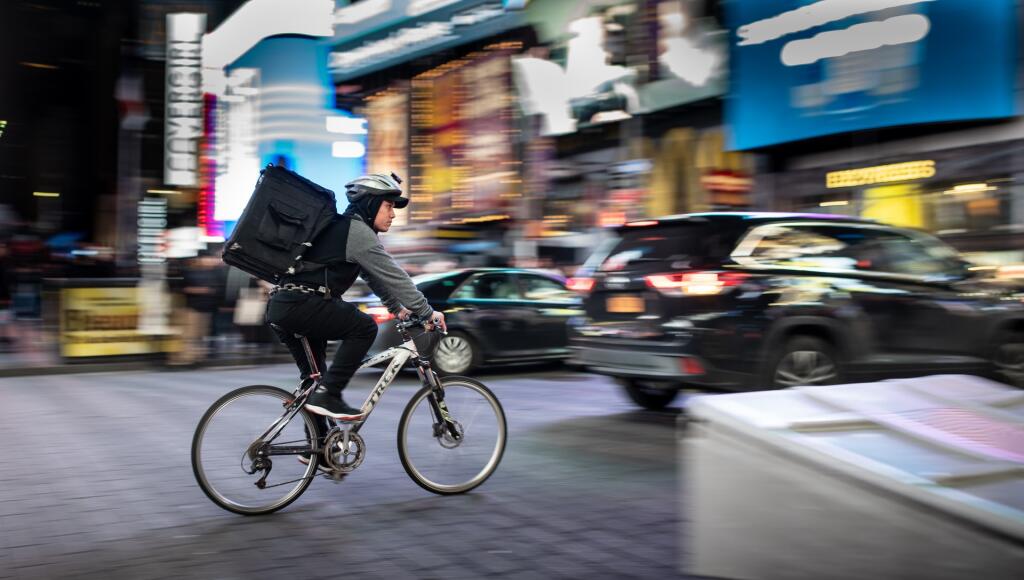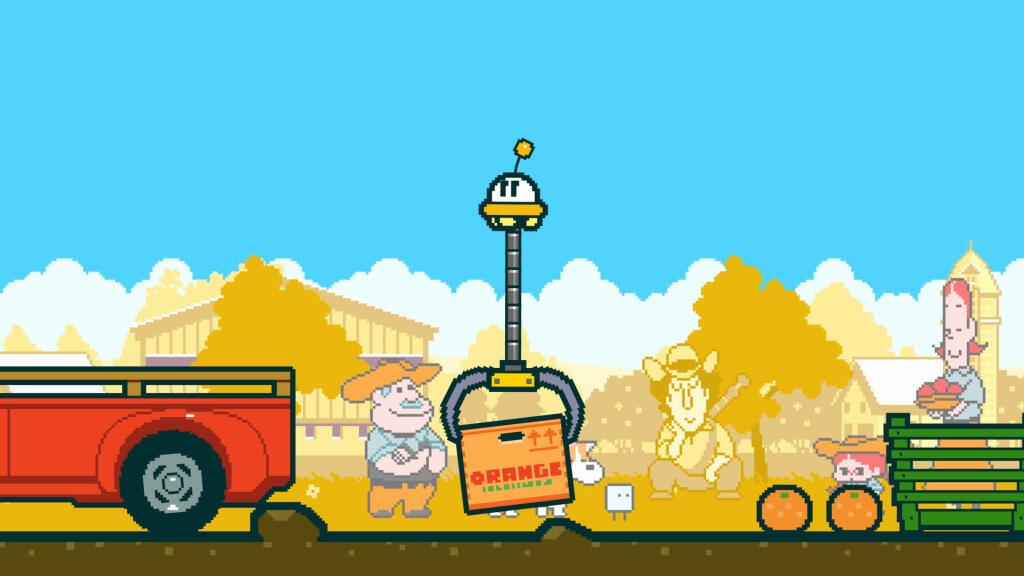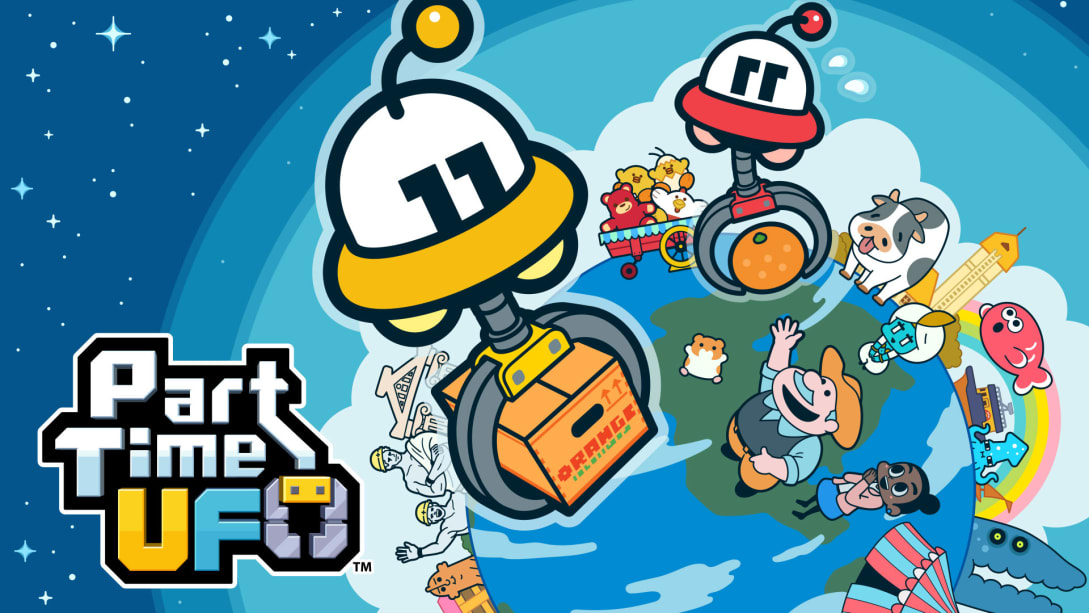US Lawmakers grapple with ABC Test, PRO Act
Labor is what we give in exchange for the ability to provide for ourselves and, along with land and capital, it’s one of the three factors of production. In fact, no one reading this has ever experienced a society where it was not expected that they would work for their bread.
In HAL Labs’ Part Time UFO we see Earth itself as a planet entirely centered around work and jobs and the game’s protagonist, Jobski the UFO, becomes involved specifically in the so-called ‘gig economy’, a set of service industries based on independent contract work, and a collective of workers facing potential challenges with the recent passing of the Protecting the Right to Organize (PRO) Act.
Much can be learned by examining the narrative of gig work we find in this title and what life is like for the real gig workers.
The game
Part Time UFO dropped on mobile devices in early 2018 and was subsequently released for the Switch in October 2020. It’s a physics based puzzle game with an arcade framework of short, timed challenges and score based rewards. The gameplay involves guiding Jobski around a small screen using his claw-game style crane arm to pick up, move, and place different objects.
A gig is any small job or task which could be done in a few hours like delivering a meal, creating a simple design, or cleaning a home.
The wild swing of the extendable arm and the precarious stacking of these objects, running from huge monoliths used to build a temple to a platter of fancy pastries, constitutes the fun and challenge. Each of these challenges is presented as a job for which Jobski will be paid and which are all organized in a part-time job magazine given to him by the first human he meets upon reaching Earth.
From there we see that Jobski has a little apartment and spends his time split between picking up gigs and buying outfits. Those costumes can give you benefits including nabbing a speed boost while dressed as a ninja or the ability to stop on a dime while decked out in a hard hat.
Eventually he saves the world (with his prodigious stacking skills) and goes on vacation. Livin’ the dream.
Our world
Meanwhile, in the real world many humans work in a series of part-time jobs where they are paid often based on their speed and precision with individual tasks or “gigs”. Often, these gigs are received via a smartphone app. According to a 2016 article from the U. S. Bureau of Labor Statistics “there is no official definition of the “gig economy”—or, for that matter, a gig,” for our purposes, we can simply say that a gig is any small job or task which could be done in a few hours like delivering a meal, creating a simple design, or cleaning a home.
The relationship between the companies which operate these gigs, the people performing the gigs (or Gig Workers), and the customers paying for the gigs is what we can call the Gig Economy. Some of the largest and most familiar companies in the Gig Economy are Uber, Lyft, and DoorDash, although, as of this writing there isn’t any smartphone app that just for hiring someone to stack things for you.

Jobski, really, isn’t an employee anywhere, he just does his work, makes his money, and moves onto the next thing. Fortunately for Jobski he doesn’t need to eat, pay medical bills, or support any children.
So, what happens to someone if the only money they make, or a very large part of their income comes from working in the gig economy? Do they count as an employee?
The State Supreme Court in California answered that question in 2019 with Assembly Bill 5 (or AB 5,) a law which helps the government determine if a Gig Worker is an Employee of a company or merely an “Independent Contractor” (the term used by these companies for their Gig Workers.)
Companies don’t have to give “Independent Contractors” things like sick leave or pay minimum wage.
It’s easy as…
AB 5 established a method for determining whether or not a Gig Worker was an Employee or an Independent Contractor called the ABC Test. To put it briefly, it’s three statements that must be true of a Gig Worker for them to be considered an Independent Contractor:
- they must not be under direct control of the entity hiring them
- they must perform work that’s outside the company’s usual business, and
- they must already work independently performing that kind of labor on their own
Those last two in particular were what made the difference for Gig Workers doing things like delivering meals and using their own car as a taxi.
Now, Gig Workers were considered capital-E Employees, earning the same rights that more typical workers enjoyed.

Jobski, unfortunately, would probably fail California’s ABC Test, as none of the work he does qualifies him as an employee, save perhaps in the museum levels where he is assembling and repairing statues for display.
In other levels, Jobski defends a construction site from ninjas and builds a sumo-wrestler pyramid on a high school athletic field. Both of these would be considered unusual tasks for builders and educators alike.
New efforts
Unfortunately, these newly found rights did not last, as businesses pushed-back against gains for workers.
In November of 2020, Californians were asked to vote on Proposition 22, a state statute which created a new law to specifically re-classify app-based drivers as Independent Contractors, fully overriding the law created by AB 5.
However, this does not change how AB5, and the ABC Test, affects other kinds of workers. So, who does this benefit and how did this happen?
Proposition 22 was first a threat made by Uber, Lyft, and Uber in 2019 when AB5 was about to pass. According to CNBC, the two companies combined pledged $60 million into the campaign to promote it.

These companies spent a lot of money on these campaigns because it’s much cheaper to change the laws so that those people will still be performing the same work for you for less money, despite their claims that the new law would be better for their drivers.
The method behind the campaigns themselves, however, became a point of legal challenge for Uber with some drivers threatening to sue. According to many of Uber’s drivers during this time, the company had pop-ups in the app which would appear while they were working encouraging them to vote in favor of Proposition 22.
Imagine if the computer you used for work constantly interrupted you to tell you to vote to make the job you are currently doing benefit you less.
Challenges
According to David Lowe, one of the legal representatives of the workers, in a press release: “Uber’s threats and constant barrage of Prop 22 propaganda on an app the drivers must use to do their work have one purpose: to coerce the drivers to support Uber’s political battle to strip them of workplace protections.”
Legal challenges to the legislation are ongoing in California, though Uber, specifically, is attempting to parlay its win in California in places like Canada and the United Kingdom, too. In the United States, the House of Representatives has recently passed the PRO Act, a piece of legislation that has raised eyebrows from the U.S. Chamber of Commerce and even freelancers, a bill that includes the ABC test.
Read: “Tom Nook is a socialist“, here on Liftoff!
Jobski’s adventures as a worker on Earth certainly seem a lot like the freedom and flexibility that a Gig Economy could provide for people.
However, the experiences of Gig Workers today can yet become very different. Their future isn’tt yet decided.
Hopefully, one day we will be like Jobski, able to take the work that we need, while being rewarded for it in a way that’s fair and appropriate to our effort.
Joshua Jarrett is a writer and artist from Atlanta, Georgia. His work and other important links can be found at linktr.ee/jj_rrtt
GAME IMAGES: Hal Egg
